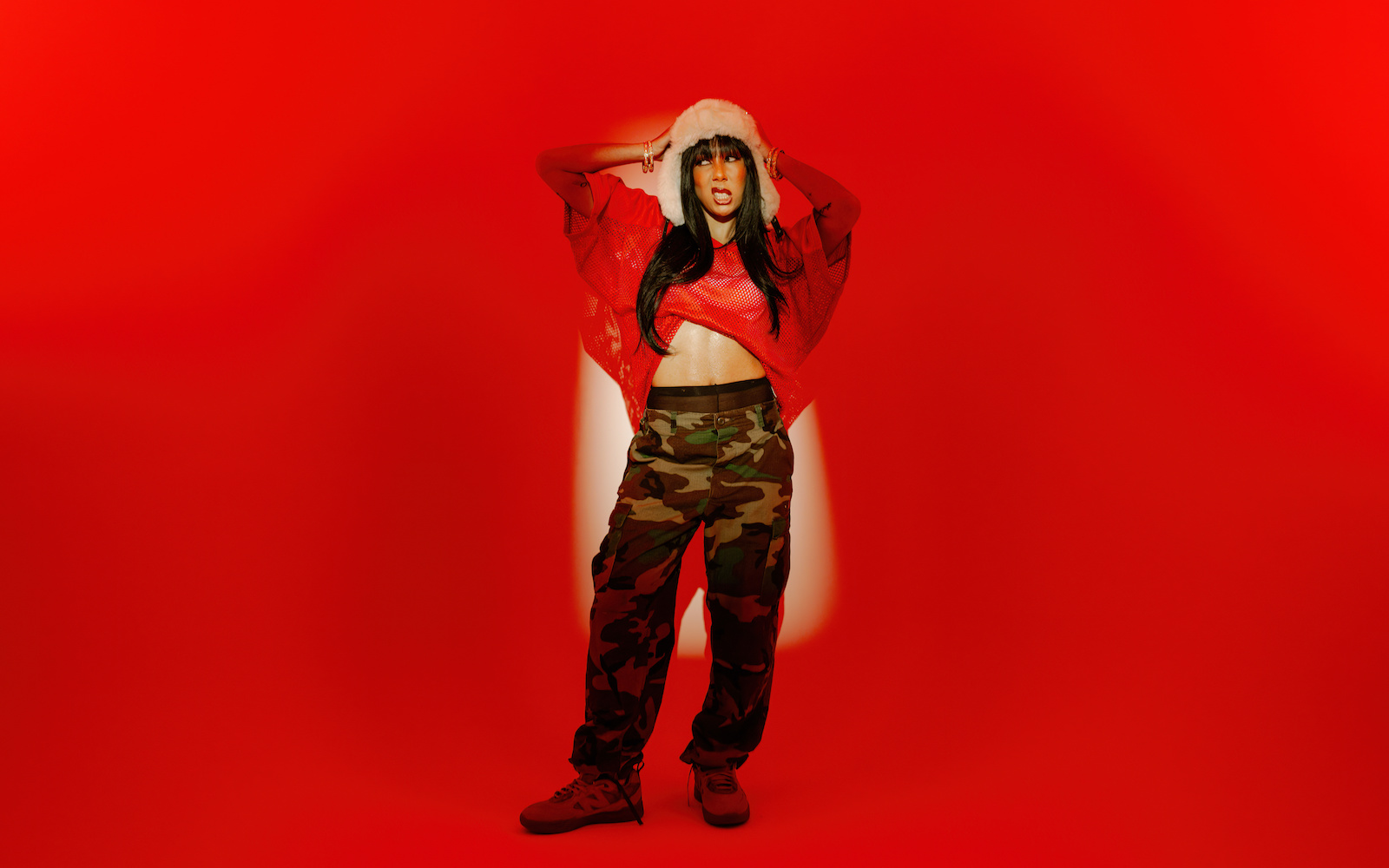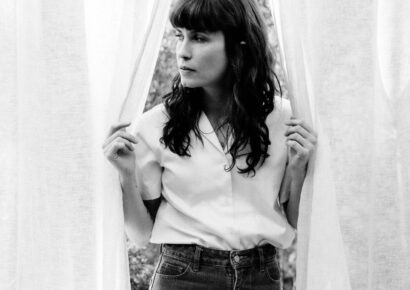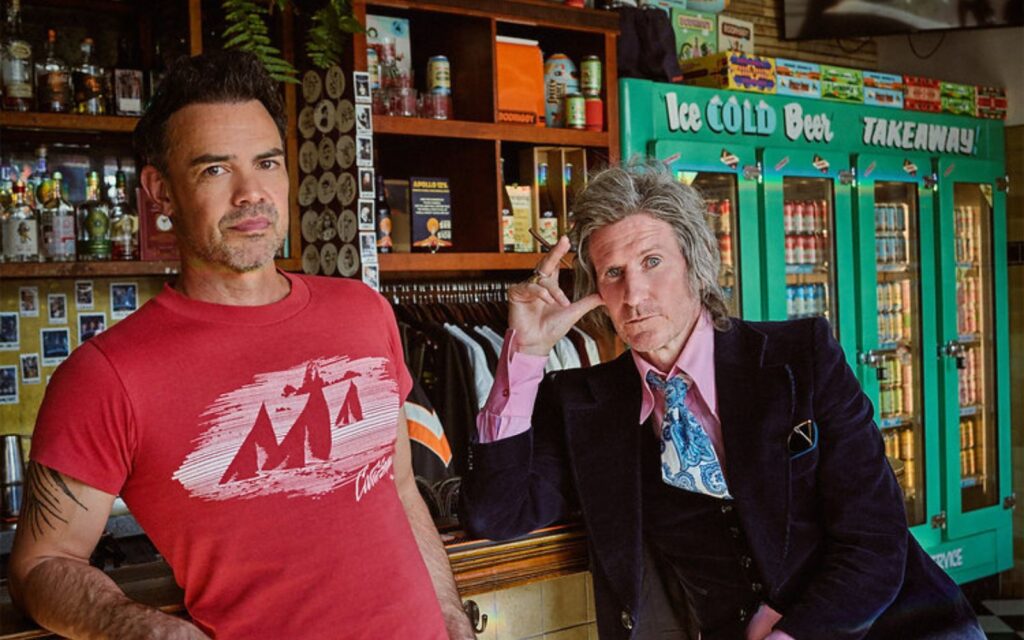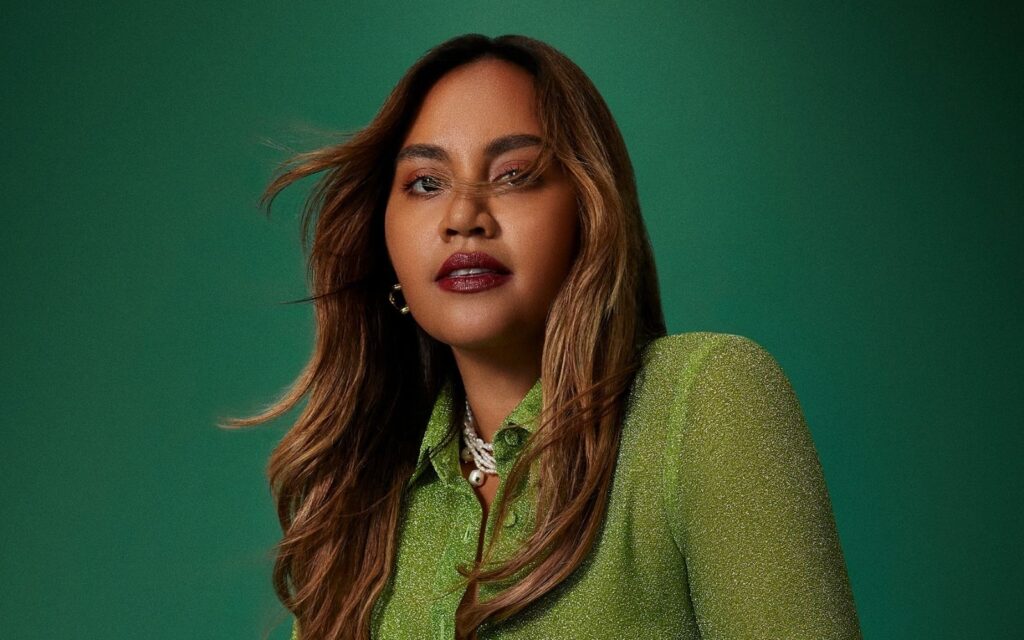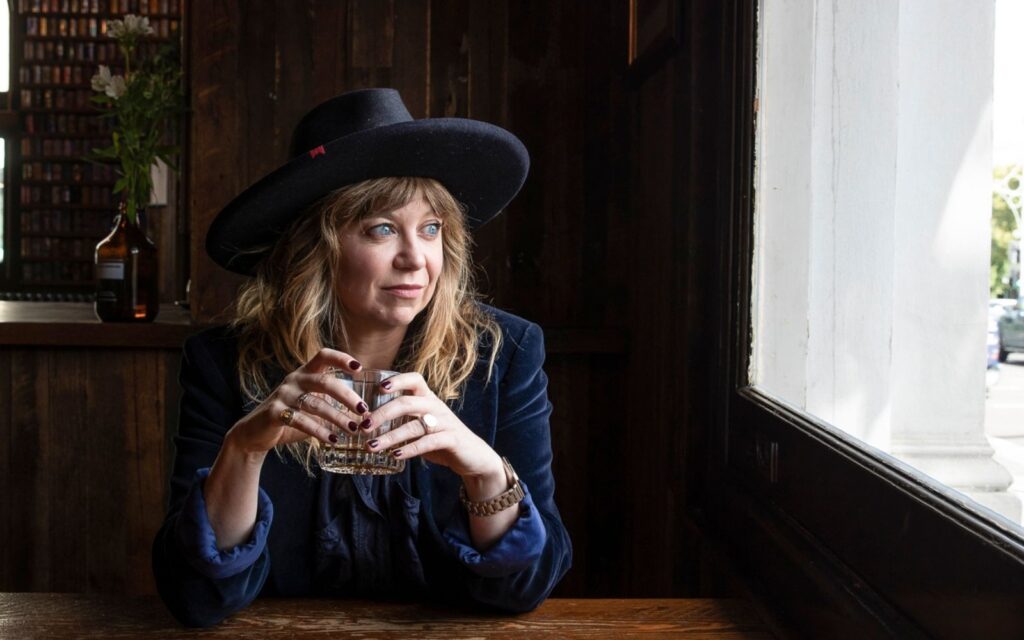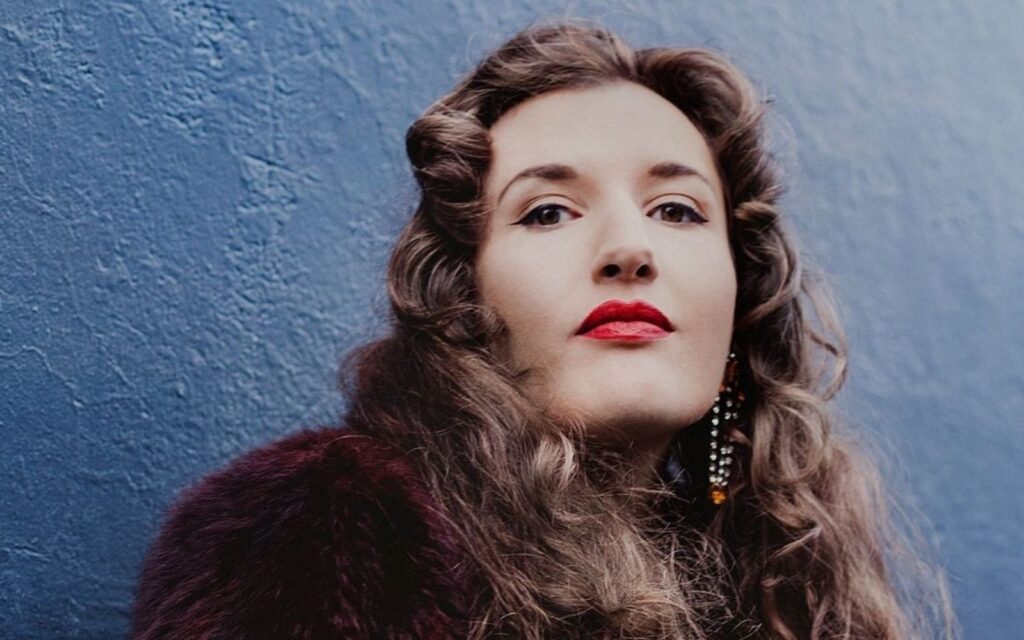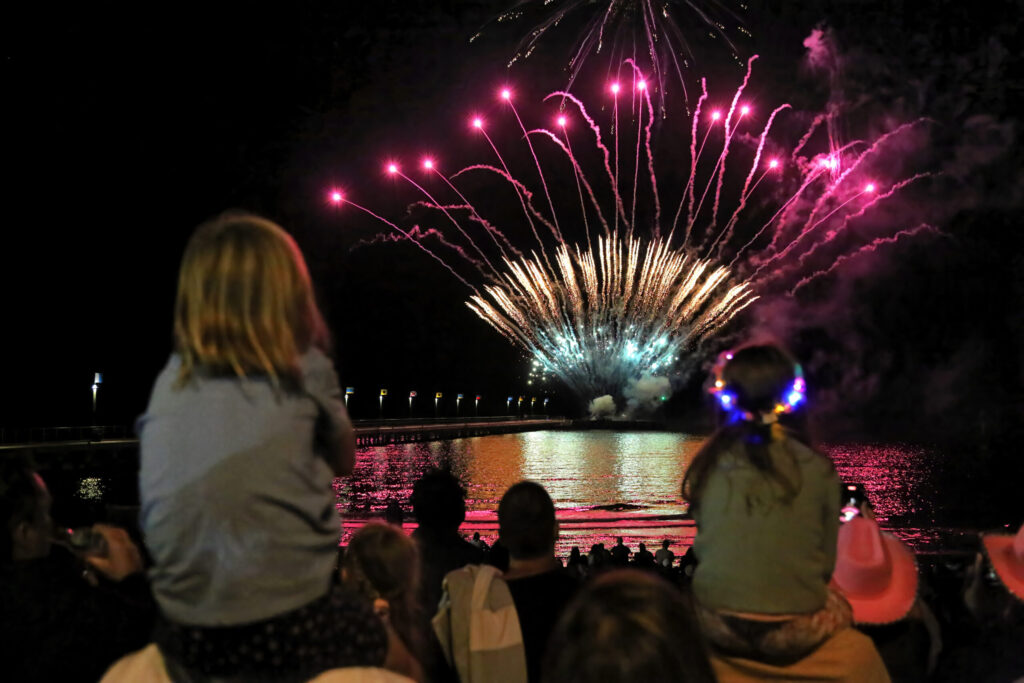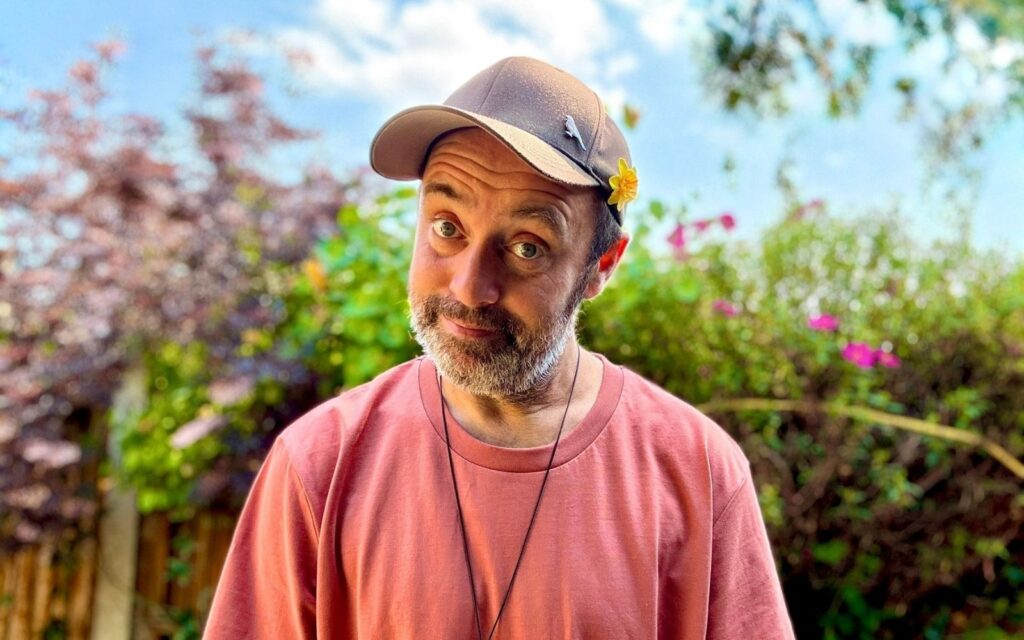When asked to encapsulate the one message she hopes listeners will take away from her music, Miss Kaninna has only four words: “Don’t fuck with us”.
The 26-year-old’s ascent into the Australian music scene has been nothing short of meteoric. Unafraid to confront uncomfortable truths through sharp lyrics and an expanding array of sounds, Miss Kaninna has cemented herself as a force to be reckoned with.
With her highly-anticipated debut EP, KANINNA, she isn’t asking for a seat at the table – she’s kicking down the door and telling the world to listen.
Keep up with the latest music news, features, festivals, interviews and reviews here.
Set for release on September 20, the EP is a dazzling reflection of Miss Kaninna’s multifaceted talent. Exploring freedom, vulnerability and reassertion of dominance, each track serves as a “theme song” for an aspect of her identity.
“I wanted this to be a selection of different emotions and feelings, kind of like a playlist where you’ve got a song for every situation,” she says.
Produced with YAOB (Jacob Farah), the songs draw hip-hop, rap, R&B and pop with swirls of Reggaetón and other global influences. The young musician is determined to avoid being “boxed in” to a single genre.
“I don’t want to be known as just a rapper, or just a singer, or for just being an Indigenous artist,” she says. “I want to be known as an artist.”
Hailing from the remote shores of Bruny Island in lutruwita/Tasmania, the proud Yorta Yorta, Dja Dja Wurrung, Kalkadoon and Yirendali woman was born into a world with music and community at its centre.
Her mother, Ruth Langford, played in a funk-reggae band before founding the Aboriginal social enterprise Nayri Niara and working for the Indigenous Women’s Legal Centre.
Her grandmother, celebrated painter and activist Rosalind Langford, was instrumental in establishing the Aboriginal Information Service (AIS), Tasmania’s first Aboriginal organisation, and was elected as its first State Secretary.
“My whole life I’ve been surrounded by musicians,” Miss Kaninna says. “Growing up, I always told my mum that I wanted to be a singer. I believed that with my whole heart and soul.”
Despite her early interest in music, Miss Kaninna shelved her aspirations after high school and moved into a career in nursing. “I realised that it wasn’t as easy as just giving it a go, so I kind of took a step away from that dream.”
A few years on, the pandemic reignited her passion. “Seeing the downfall of live music, it was like, ‘Oh my God, have I missed my chance?’” she recalls. As social gathering restrictions eased, a series of “highly illegal” backyard concerts hosted by friends saw her take backing vocals. “Ever since then I just got the real hunger for it and started taking it more seriously.”
View this post on Instagram
Throwing herself into songwriting and assembling a band, she played local gigs before moving to Naarm/Melbourne where her recordings began taking shape.
Since the release of her debut single, Blak Britney, in early 2023, Miss Kaninna has leapt from strength to strength. “My whole life has changed. It’s everything that I thought music was going to be and more,” she says.
“I really didn’t think that blackfellas all over the country would stand with me,” she says. “Black women have come up to me, from four years old up to bloody 90 years old, and said that they feel seen. To me, that’s the most important thing.”
However, her lightning launch into the spotlight has not come without challenges. The multi-award-winner has been subject to frequent derogatory discourse since entering the public eye. Fortunately, any opposition only adds fuel to her flame.
“I know what hate is,” she says. “I know what racism is. I’ve experienced it my whole life, like my whole family has. Even in the face of that, we still rock up to the marches, we still go out to protect country and risk getting arrested by the cops or getting flogged. As long as this music makes black people feel good, I really don’t care what white people have to say about it. It just makes me want to do more and be more purposeful with my message.”
Reflecting on the whirlwind of her past year, Miss Kaninna speaks frankly about navigating the demands of the music industry.
“I feel the pressure of them wanting me to be a certain type of black,” she says. “I feel the pressure of making sure that I’m staying true to who I am, but also still trying to live off my music…Those people want nothing more than for me not to swear, to dress all covered up, to only talk positively and to trauma porn about how sad it is to be black. That’s not what I’m about.”
Instead, she pushes back on expectations to “censor” herself. “I’m trying to focus on the truth-telling of what’s happened and uplifting our community – especially in the lens of being a woman,” she says. “I’m 26, I’m in the prime of my fucking life. If I want to wear a G-string and nipple covers on stage, I will.”
The lead single from her forthcoming EP, Dawg In Me, is emblematic of her gutsy defiance – describing the song’s theme as “fuck around and find out”.
“Since coming out with music, a lot of people have been testing me to see what kind of person I am, to see if I’m going to react,” she says. “I’m not gonna move when you tell me to move, but if you do me wrong – you’re gonna get it at some point. Whether that’s me giving it to you or whether it’s the spirits, it’s gonna come back.”
Inspired by artists like DMX and Doja Cat, the track melds playful, cautionary bars over crisp drums and rumbling bass. With her steadfast anti-colonial message never far away, KANINNA challenges social perceptions of Aboriginal music and invites audiences to expand their understanding.
“People have been brainwashed to think that Indigenous people are a certain kind of way,” Miss Kaninna says. “They’ve become so comfortable with being racist around us that they don’t even realise that what they’re doing is racism, or they’re so comfortable with having a stereotype pushed on us. I’m trying to break down the barriers of those stereotypes.”
As she prepares for her first headline tour in November, Miss Kaninna expresses a mix of excitement and disbelief. “I still don’t really understand what’s happening,” she says. “It’s very surreal”.
Looking ahead, she says she’s working towards releasing an album and performing on international stages. But her vision extends beyond personal success, already brainstorming ways she could give back to communities that, like her own, face long-standing socioeconomic challenges.
“I’d like the opportunity to not only tour these major Australian cities, but to get into communities that are struggling and don’t have access to music,” she says.
Aiming to conduct workshops and engage with emerging artists, she hopes the representation of identity will be a beacon for young Indigenous Australians with a similar dream.
“I want to be able to share what I have experienced with other people,” she says. “We have some of the most talented artists, they’re just poor. I want to help give people what other people have shown me.”
Keep up with Miss Kaninna here.
